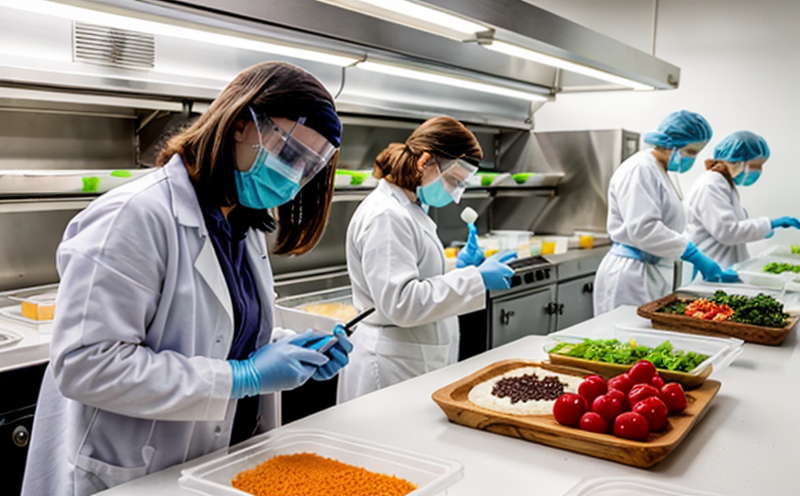EN 14604 Microbiological Safety Testing for Food Contact Surfaces
The EN 14604 standard is a critical document that establishes the requirements, test methods and acceptance criteria to ensure microbiological safety of food contact surfaces. This includes materials such as packaging, utensils, and equipment used in direct contact with food products. The primary objective of this testing is to protect public health by identifying potential sources of contamination that could lead to foodborne illness.
The standard applies to all entities involved in the production and distribution of food contact surfaces, including manufacturers, suppliers, and distributors. It mandates compliance for various stages from manufacturing through final product release. By adhering to EN 14604, organizations not only meet regulatory requirements but also enhance their reputation as leaders in food safety.
The scope of this testing includes assessing the microbial load present on surfaces, ensuring they do not harbor harmful pathogens like Salmonella or E. coli. Additionally, it evaluates the effectiveness of cleaning and sanitization procedures used during production cycles. Compliance with EN 14604 is mandatory for companies operating within the European Union; however, many global firms choose to adopt these stringent standards voluntarily.
The testing process involves several key steps starting from specimen preparation where samples are taken from food contact surfaces. These samples undergo rigorous examination using advanced microbiological techniques such as culture-based methods and molecular detection assays. The results provide detailed information about the types and concentrations of microorganisms present, which can then be used to determine compliance levels.
For accurate testing, specialized equipment is required including growth media suitable for different bacterial species, incubators capable of maintaining precise temperature conditions, and analytical instruments like PCR machines or mass spectrometers. Laboratories performing EN 14604 tests must be accredited to ensure reliability and consistency in results.
The acceptance criteria outlined in the standard specify permissible limits for various types of microorganisms based on risk assessment principles. If a surface fails these criteria, corrective actions need to be implemented immediately to address deficiencies. Regular monitoring is essential to maintain continuous compliance over time.
Incorporating EN 14604 into your quality assurance program demonstrates commitment to food safety and consumer protection. It helps build trust among customers who value cleanliness and hygiene standards in their choice of products. Moreover, adhering to these stringent regulations can provide a competitive edge by setting higher benchmarks for industry performance.
Achieving compliance with EN 14604 requires significant investment but offers substantial rewards including enhanced brand reputation and reduced liability risks associated with foodborne illnesses. It also facilitates smoother interactions with regulatory bodies, ensuring seamless operation within legal frameworks.
Why Choose This Test
Selecting EN 14604 microbiological safety testing for food contact surfaces is crucial for several reasons:
It ensures compliance with international standards, which enhances credibility and reputation.
The rigorous testing process provides detailed insights into microbial presence and concentrations on surfaces.
Regular monitoring helps maintain continuous adherence to safety protocols over time.
By choosing this test, organizations demonstrate their commitment to food safety and consumer protection. This can lead to improved brand reputation and reduced liability risks associated with foodborne illnesses.
Customer Impact and Satisfaction
Increased confidence in the safety of food products handled by compliant surfaces.
Better reputation among consumers who value cleanliness and hygiene standards.
Reduced risk of product recalls due to contamination issues.
Implementing EN 14604 ensures that food contact surfaces are free from harmful microorganisms, thereby protecting public health. This not only satisfies regulatory requirements but also enhances customer satisfaction by providing peace of mind regarding the safety of products they consume or interact with daily.
Competitive Advantage and Market Impact
Voluntarily adopting strict standards sets higher benchmarks for industry performance.
Achieving compliance can provide a significant competitive edge by differentiating products based on superior safety measures.
By adhering to EN 14604, companies position themselves as leaders in food safety. This can attract more customers seeking reliable and safe products, ultimately boosting market share and profitability.





